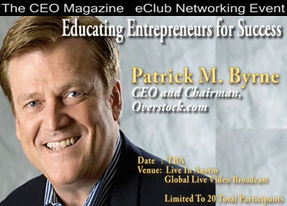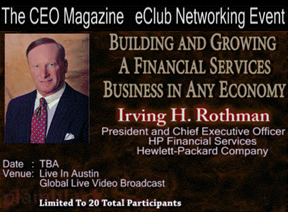You are here
- Guest Blogger |
- Management |
- Fri, 01/09/2015 - 23:00

Mark Doyle, Partner, Tredway Lumsdaine & Doyle LLP
Communication is key when building a lasting business strategy. CEOs know this to be true, and the most successful among them will establish a clear, concise and compelling plan to accomplish their goals. Once those goals are met however, it is surprising how many business leaders drop the ball when building – and communicating – an effective succession plan.
I worked on a case where my client, the owner of a highly successful business, died unexpectedly, leaving his wife to handle the business as his successor. When the son – a long time employee – asserted his right to be president, the spouse was left with the difficult task of ensuring their three children would benefit equally. Conflict with the children ensued and required the business to be sold rather than continue in the family.
Failure to construct and properly communicate a succession plan creates uncertainty —and poses challenges to a CEOs business plan following his or her departure. How can successful CEOs create a plan that ensures their businesses remain successful long after they are gone? The below tips answer this question.
Place the business’ needs before the owner
If you take care of your business, your business will in turn take care of your legacy. Successful owners view the business as a goose that lays the golden egg for their entire family. Don’t approach a succession plan as a way to ensure the current CEO is remembered as the best CEO. Approach a succession plan in a way that will continue to grow a business in line with expectations.
It is important to choose a successor who will have the business’ best interests in mind, and provide a concise plan for that person to take over the leadership. Executive interviews, 360 reviews and personal experience should all come into play when selecting the right successor.
Integrate business succession planning and tax planning
Whether the strategy is to pass the business to family, key employees or sell to a third party, integrating business and tax planning will help you establish a sound business succession plan. By creating a strategy that integrates your business goals, estate plan, tax strategies and retirement needs, CEOs will save on taxes and create a stable succession plan for the next generation. Are there charitable organizations that your current leadership would like to continue supporting? If so, establish a trust to ensure the relationship remains strong. This can be accomplished through a charitable remainder trust, which pays a specified distribution to a predetermined organization.
Work with a professional
The best piece of advice I can give a CEO when creating a succession plan is to work with experienced, neutral, third-party professionals. By tasking an experienced attorney, accountant and financial planner with creating a tailored succession plan that meets your personal and business needs, it ensures that your executive wishes will be followed. This involvement also will create a thorough and legally binding succession plan.
An attorney, CPA and financial professional with no stake in the company can provide a tax efficient exit plan that is difficult to contest. Remember to clearly outline important features to your business plan and never be afraid to ask your advisors questions. Clarity will be your friend throughout the planning process.
As a business leader, you pour time, money and intelligence into a business venture and creating a succession plan is the most effective way to ensure these commitments are honored after you’re gone. If a business fails to plan, it is in effect, planning to fail. Address your succession plan now to keep the golden eggs coming.
About the Author
Mark Doyle is partner at respected Southern California law firm Tredway Lumsdaine & Doyle LLP. With more than 30 years of experience, he advises individual, professional and corporate clients on a full range of estate, business and tax planning matters. Doyle received his juris doctor and master’s degree in law in taxation from Loyola Law School. He may be reached at MDoyle@TLDLaw.com or 877-923-0971.
Follow The Blog
Blog Categories
- Business Ops. (45)
- Editors (3)
- Entrepreneurship (196)
- Finance (25)
- Leadership (529)
Blog Authors
- Guest Blogger (835)
- Cynthia Kay (92)
- Linda Henman (78)
- Dianna Booher (46)
- Craig Ross (31)













